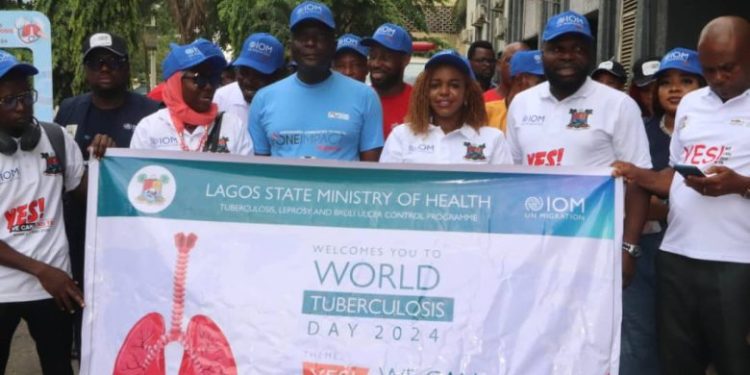Tuberculosis (TB) continues to pose a significant public health challenge in Nigeria, being one of the top 10 causes of death worldwide and the leading cause of mortality from a single infectious bacteria.
However, experts at the recent Training for Journalists on Strengthening Partnerships for TB Control organized by Journalists Against AIDS (JAAIDS) supported by AURUM Institute and UNITAID through Treatment Action Group (TAG) highlighted that the uptake of Tuberculosis Preventive Treatment (TPT) could drastically reduce the TB burden in Nigeria.
Dr. Urhioke Ochuko from the National Tuberculosis Leprosy and Buruli Ulcer Control Programme (NTBLCP) emphasized that, “TB is preventable and curable, yet Nigeria continues to rank highest in Africa for TB incidence. TPT is one of the most effective ways to prevent active TB in high-risk individuals and reduce the overall burden.”
Dr. Ochuko, who was represented by Mrs Stella Makpu from the NTBLCP, noted that the World Health Organization (WHO), reports that Nigeria had 285,561 TB cases notified in 2022, but a large number of cases remain undiagnosed.
Mrs Makpu shared that for Nigeria to achieve its TB elimination goals by 2025, TPT must continue to be scaled up alongside active case findings. Contact tracing remains an integral part of the prevention strategy. “For every diagnosed TB patient, we trace their household and close contacts to test and offer preventive treatment. This approach not only protects individuals but also prevents the spread of TB in communities,” she added.
She also buttressed that, “the road ahead is long, but with sustained effort and commitment to TPT, we can significantly reduce the burden of TB in Nigeria and save thousands of lives.”
TPT, which includes a range of treatment regimens like the six-month isoniazid course (6H), three-month isoniazid and rifampicin (3HR), and the newly introduced one-month isoniazid and rifapentine (1HP), aims to prevent latent TB from developing into an active infection.
Dr Babajide Kadiri, Institute of Human Virology, Nigeria (IHVN) said it can be quite challenging to convince eligible contacts to take the drug for 3 – 6 months due to the high pill burden involved and side effects.
Dr Kadiri noted that daily 1HP for 1 month was introduced through the support of Aurum Institute for use by eligible patients in the Lagos State TB Program. “1HP is being administered to provide wider options while still maintaining the provision of 6H to those that are not eligible to take 1HP i.e. those below 25kg, pregnant women and People Living with HIV (PLHIV).”
He thereafter added that “the introduction of the 1HP regimen in November 2023 has provided a shorter, more manageable option for patients, and is already making an impact in Lagos State.”
Statistics show a steady rise in TPT uptake across the country, with coverage increasing from 28% in early 2023 to 81% by mid-2024. In Lagos, the number of patients placed on TPT jumped significantly in Q1 2024, with 1,402 patients enrolled on the 6H regimen and over 2,500 on 1HP.
In his presentation, Dr. Omonigho Ogwa, from the Damien Foundation, said one of the major barriers to TB control in Nigeria has been the challenge of convincing eligible individuals to take the lengthy preventive treatment, especially due to the side effects and high pill burden.
He, however, noted that the shorter regimen options and improved awareness are now changing this narrative. “Our campaigns aim to dispel myths and encourage people to complete their treatment. We’ve seen promising results, especially in Lagos, where awareness creation is coupled with mobile testing initiatives.”
While noting that the side effects of TPT might discourage people from taking TPT, Mrs Makpu explained that “most adverse reactions to TPT are minor and occur rarely. However, specific attention should be paid to preventing drug-induced hepatotoxicity.”
She advised caregivers to contact their health care provider or stop treatment immediately if children or adolescents on TPT develop “Anorexia, nausea, vomiting, abdominal discomfort, persistent fatigue or weakness, dark-coloured urine, pale stools or jaundice.”
To address sociocultural norms and promote awareness and accurate information about TB and increase the uptake of TPT, Ms Olayide Akanni, the Executive Director of JAAIDS appealed to the media to report about TPT and to use their platforms to reinforce messaging on TB signs, symptoms, TB predisposing factors, available services and curable nature of TB.

